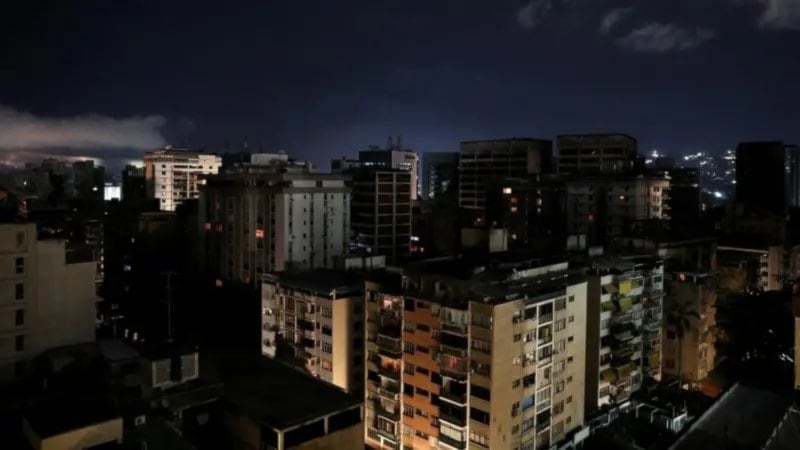Power restored in Venezuela after widespread blackout
The blackout affected all 24 states in Venezuela, causing total or partial loss of electricity.
-

Sabotage of the National Electric System is reported this Friday. Blackout is reported in 15 states of the South American country. (TeleSur)
Power returned to the Venezuelan capital, Caracas, on Friday, after a 10-hour outage, the likes of which had not occurred since 2019, due to an attack on the national electricity grid.
The blackout affected all 24 states in Venezuela, causing total or partial loss of electricity, according to Freddy Nanez, the Minister of Communication and Information, who spoke on state television early Friday morning.
"We have been victims once again of electrical sabotage," Nanez stated.
After the power outage across Venezuela, the country's president, Nicolás Maduro, addressed the nation, saying: "I am on the front lines with you in the face of this criminal attack against the national electricity grid. I have said it and I repeat it: calm and prudence, nerves of steel!"
"Desperate fascism is attacking the people, but together we will overcome this new attack. We will always win," Maduro added.
In turn, Foreign Minister Ivan Gil Pinto said, "The fascist opposition threatened to attack the electrical system, resorting to trying to harm people and punish them for the political failure they are facing."
"They (the opposition) will not be able to do this, the Bolivarian government will protect Venezuelans and will once again defeat the claims of the criminals," Gil Pinto continued.
By around 1 pm local time (1600 GMT), power had been restored to some areas, including the western city of Maracaibo, the central city of Valencia, the eastern city of Puerto Ordaz, and parts of Caracas, according to Reuters witnesses. Interior Minister Diosdado Cabello told state television that the power would be restored gradually, beginning with the capital.
En algunos espacios, como en la plaza de los Palos grandes, habilitaron una planta eléctrica con cargadores para que los vecinos puedan conectar sus equipos. A esta hora en algunas partes se ha restablecido el servicio aunque con inestabilidad en las fluctuaciones. pic.twitter.com/NBSLUUYlSA
— Osmary Hernandez (@osmarycnn) August 30, 2024
The blackout also disrupted operations at state oil company PDVSA, including at its largest terminal, Jose, where loading and unloading activities were halted. A key oil upgrader, Petropiar, which produces exportable crude, was also affected.
Despite the widespread outage, some parts of the oil industry were less affected. PDVSA’s headquarters in Caracas lost power, but the company's largest refining complex, Paraguana, continued operating thanks to its own power plant. Additionally, many oilfields and operations in the Orinoco Belt, Venezuela’s largest oil region, were minimally impacted as they have their own generators.
This comes after Venezuela witnessed violence and vandalism in the days following the elections that declared Maduro as the country's president.
Read more: Venezuela celebrates first month of Maduro's victory
Recently, President Maduro initiated efforts to counter the riots in Venezuela, which have been spearheaded by foreign influences, particularly the US, in undermining Maduro's recent electoral victory.
Earlier this week, Reuters reported that President Maduro is preparing to announce significant executive changes at the state-owned oil company PDVSA and the oil ministry, as part of a broader effort to address issues of corruption affiliation with the opposition.
These changes are expected to include replacing PDVSA's current chief executive, Pedro Tellechea, with the company's vice president, Hector Obregon, and appointing a new oil minister.
Pedro Tellechea, who took over as head of PDVSA in January 2023 and later assumed the role of oil minister following the resignation of Tareck El Aissami, is reportedly under review.
An audit of Tellechea's tenure is underway, with reports being prepared on his achievements and accountability.

 3 Min Read
3 Min Read








